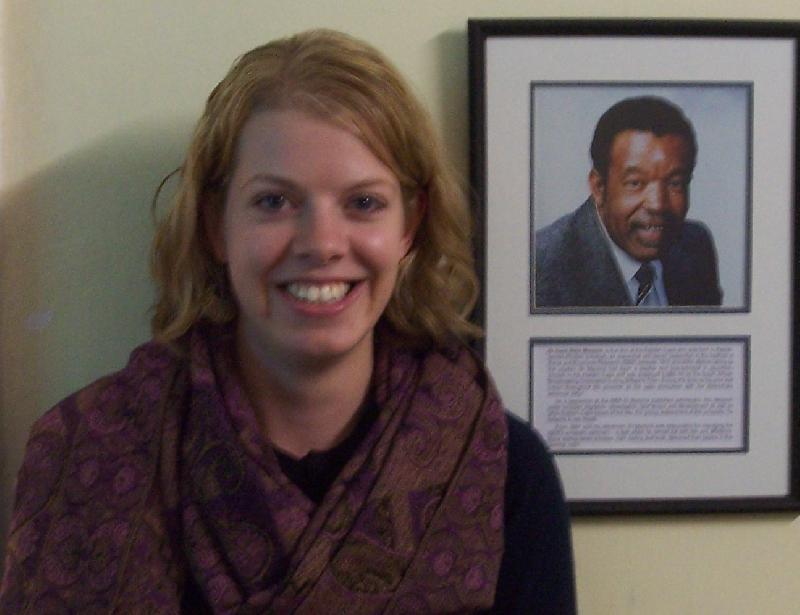
Julia Mase, of the Brooks World Poverty Institute at the University of Manchester, has been in Grahamstown for the last fortnight, working on a collaborative project on Ageing, Wellbeing and Development: A comparative study of Brazil and South Africa. She presented the latest findings of this study at a Rhodes seminar hosted by the Institute for Social and Economic Research (ISER) on 18 October.
Mase has previously worked in the NHS Continued Care programme, with Elderly Nursing care teams in London, and with the NGO Age UK. This project is now in its third year, and Mase was eager to present the trends which have come up as a result of the data received.
Giving the group an overview of the research, Mase explained that a major study was conducted in 2002 on households in certain areas of Brazil and South Africa which contained a member 55 years or older.
This study found that social pensions had a significant positive impact on poverty. The current study in which she is engaged returned to as many of these households as could be traced, in an attempt to provide a longitudinal database for the analysis of individual ageing, wellbeing, household dynamics, livelihoods and public policy.
She began with an outline of three successful pillars for poverty reduction, namely: economic growth and the generating of opportunities; basic services; and direct assistance to the poorest of the poor, helping growth and services to reach them. This is of course where the often disputed Social Grants come in, along with the debate as to whether they actually facilitate access and alleviate poverty in the way it is anticipated they will.
She reiterates that the key questions for this research are whether direct assistance to older poor people is enough to alleviate old age poverty, and whether alternative social protection expansion paths influence policy outcomes?
Looking at the two countries, it can be seen that South Africa has provided a “safety net” in the shape of grants for children and the elderly, but it has no comprehensive welfare state providing cradle to grave protection for those who are vulnerable. Brazil, on the other hand, has undergone something of a paradigm shift, dropping the focus from specific groups in favour of focusing on all people living in poverty.
Using national poverty trends as a background, the data gathered indicates that Brazil is having greater success at reducing old age poverty and inequality, with the trend based on an income per household dynamic indicating an increase in old age poverty here in South Africa.
It is hard to elaborate the varying levels of complexity present in the situation on the ground when discussing trends, but Mase's conclusion, that the social grant to pensioners is vitally, crucially important, seems very clear. With trends in income measures of welfare showing an increase in South African old age poverty over the period 2002 to 2008, it is obvious that poverty and welfare dynamics do indeed matter.
